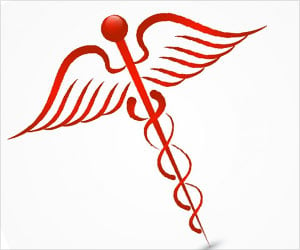- European Medicines Agency (EMA) recommends the use of a specific formulation of hydrocortisone for treating children with primary adrenal insufficiency.
- Primary adrenal insufficiency could be a life-threatening disorder which may require a life-long treatment with hydrocortisone to act as a replacement for the missing steroid hormone called cortisol.
- A specific formulation of hydrocortisone offers better compliance in children with adrenal insufficiency with the added advantage of replacing the bitter taste of powdered tablets of hydrocortisone.
Hydrocortisone in Primary Adrenal Insufficiency
Hydrocortisone, a glucocorticoid has been used to treat primary adrenal insufficiency both in adults and children as a replacement therapy for the naturally occurring cortisol in the body. The aim of the treatment is to reduce the symptoms of hormone deficiency without leading to increased hormone levels.The tablet form of hydrocortisone, while easy for an adult to consume maybe difficult to be swallowed by children who are nor old enough. Hence these tablets are crushed and given to them based on their requirements. The powder or the crushed tablets of hydrocortisone are really bitter to taste and children usually refuse to take such unpleasant medications.
While compounding there is also a possibility of medication error leading to the child ingesting either an excess or a reduced amount of the medication that can result in inappropriate pharmacological therapy.
A specific formulation of hydrocortisone as oral granules for immediate release will greatly reduce such risks of medication errors and also deliver more accurate doses to children. The granules also help in masking the bitter taste and result in proper medication adherence finally leading to better treatment outcomes.
What is Hydrocortisone?
Hydrocortisone is a steroid hormone known for its crucial role in regulating and maintaining body function. According to the WHO’s list of essential medicines, hydrocortisone is considered to be one of the most effective and safe medications required in the healthcare system.Hydrocortisone is an anti-inflammatory and immunosuppressive drug which is considered to be the pharmaceutical form of cortisol available for topical application, oral administration, and intravenous injection. It is found to be the drug of choice for treating adrenocortical insufficiency.
Hydrocortisone was found effective in various disease conditions such as rheumatoid arthritis, chronic obstructive pulmonary disease, asthma, thyroiditis, dermatitis, androgenital syndrome, and hypercalcemia. It is necessary to taper the dose slowly because the abrupt stopping of the drug results in withdrawal symptoms.
What is Primary Adrenal Insufficiency?
Primary adrenal insufficiency is a long-term hormonal disorder that occurs due to the impairment of the adrenal glands resulting in inadequate secretion of certain hormones by the adrenal gland. It is commonly termed as Addison’s disease and usually occurs when the adrenal glands are damaged and as a result cannot secrete an adequate quantity of the adrenal hormone called cortisol.Adrenal insufficiency, if left untreated leads to severely low blood pressure, depression, weight loss, fluctuations in mood and personality, vomiting, muscle weakness or fatigue, abdominal pain, electrolyte imbalance, and kidney damage. Adrenal crisis is also reported in some cases due to the repeated exposure to stress such as infection, injury, surgery or accidents. As a result, death could also follow.
It is estimated that nearly 110 to 144 of every 1 million people living in developed countries suffer from primary adrenal insufficiency.
Causes of primary adrenal insufficiency are
- Autoimmune disease
- Tumor of the adrenal gland or congenital adrenal hyperplasia
- Disease caused by unknown origin (idiopathic)
- Adrenal Insufficiency & Addison’s Disease - (https://www.niddk.nih.gov/health-information/endocrine-diseases/adrenal-insufficiency-addisons-disease)
- Predicting Cortisol Exposure from Paediatric Hydrocortisone Formulation Using a Semi-Mechanistic Pharmacokinetic Model Established in Healthy Adults - (https://www.ncbi.nlm.nih.gov/pubmed/28762136)
- Hydrocortisone - (https://www.pituitary.org.uk/information/treating-a-pituitary-condition/hydrocortisone/)
Source-Medindia












